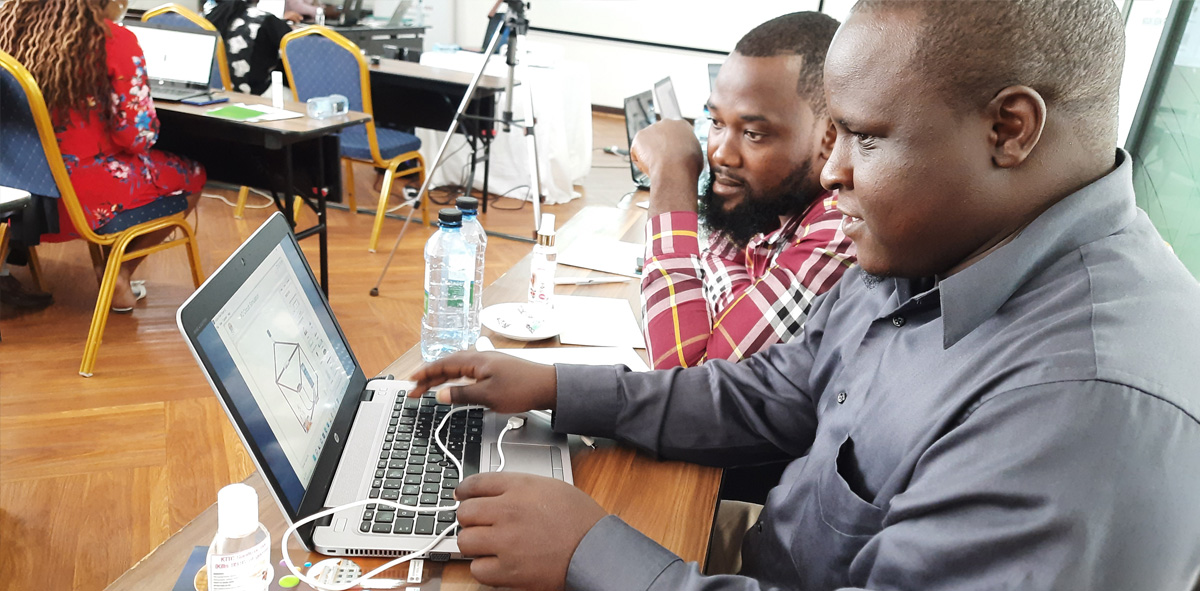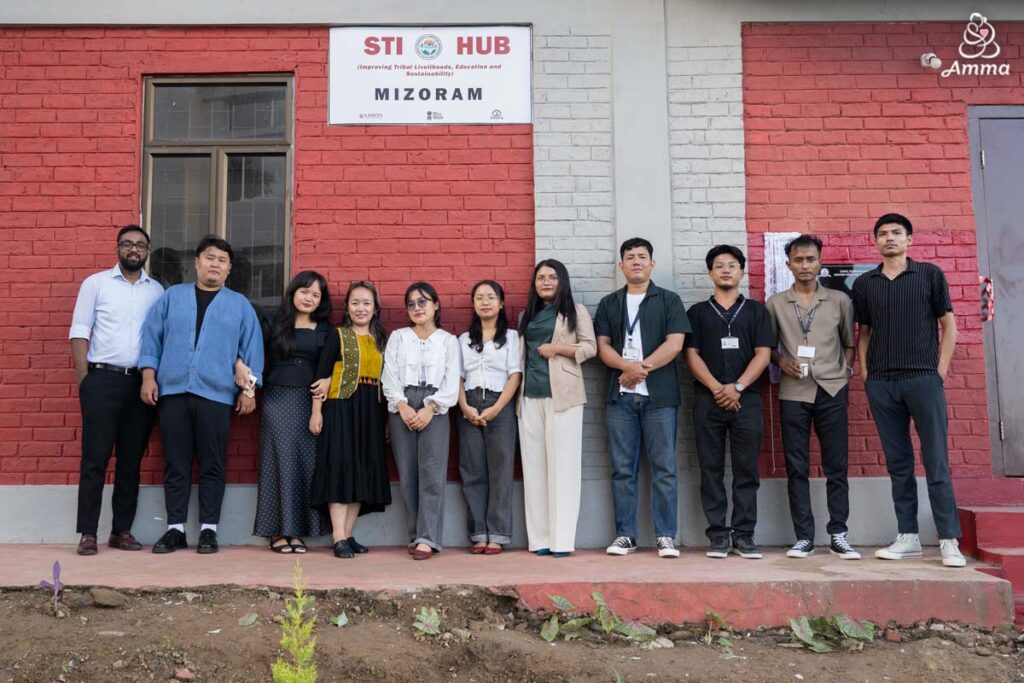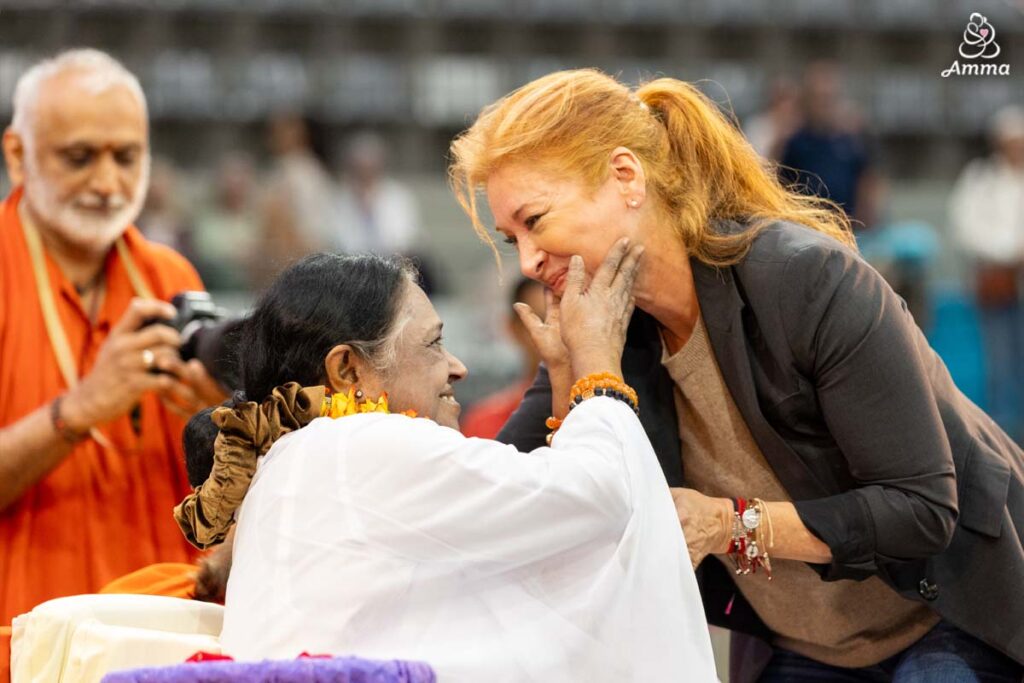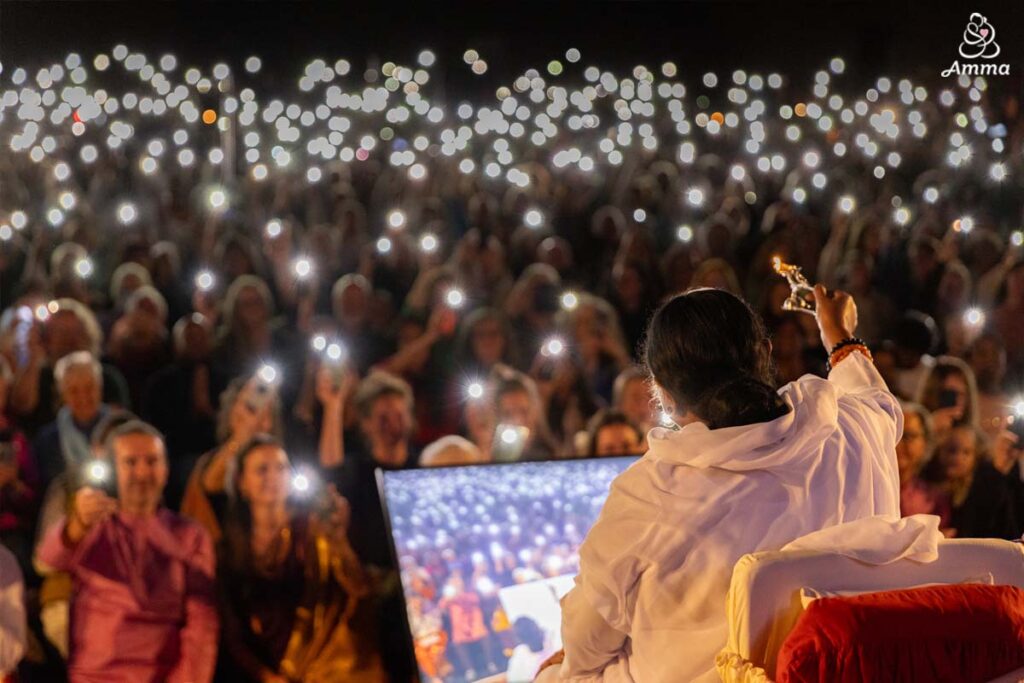Nairobi, Kenya
The university is connecting with institutions of higher learning to share free-of-cost access to virtual and simulated laboratory experiments.
Amrita Vishwa Vidyapeetham has further reached out to students in Africa who live in remote rural areas or economically-challenged backgrounds to provide Amrita Virtual Labs for engineering and sciences. The university has already established a strong network in India that provides computer-simulated physical laboratory experiments free-of-cost to support post-secondary studies.
Virtual Labs (VL) produce computer-simulated physical laboratory experiments that allow users to access media-rich online learning environments to conduct experiments in a digital environment. This innovative technique is enabling the study of experimentation beyond the boundaries of traditional laboratories. Amrita’s subject areas include Biotechnology and Biomedical Engineering, Chemical Sciences, Physical Sciences, Computer Science, Mechanical Engineering, and Cybersecurity.
The Commonwealth of Learning (COL) is the world’s only intergovernmental organisation solely concerned with the promotion and development of distance education and open learning. In association with the Kenya Technical Trainers College (KTTC), they invited Amrita to Kenya to conduct a three-day face-to-face workshop for trainers from Uganda, Tanzania, Malawi, Zambia, and Kenya. Amrita’s Dr. Krishnashree Achuthan, Dean of Post-Graduate Studies; Mr. Vysakh KK, Research Associate and Team Lead; and Mr. Saneesh PF, Project Manager travelled to Nairobi to take part.
Free virtual labs allow sharing of scarce and costly scientific equipment with institutions that are less fortunate, thereby providing the opportunity to conduct experiments that would not otherwise be accessible. These digital learning tools are enabling students to practise and better learn the theory and concepts behind the experiments, whenever and wherever they are.
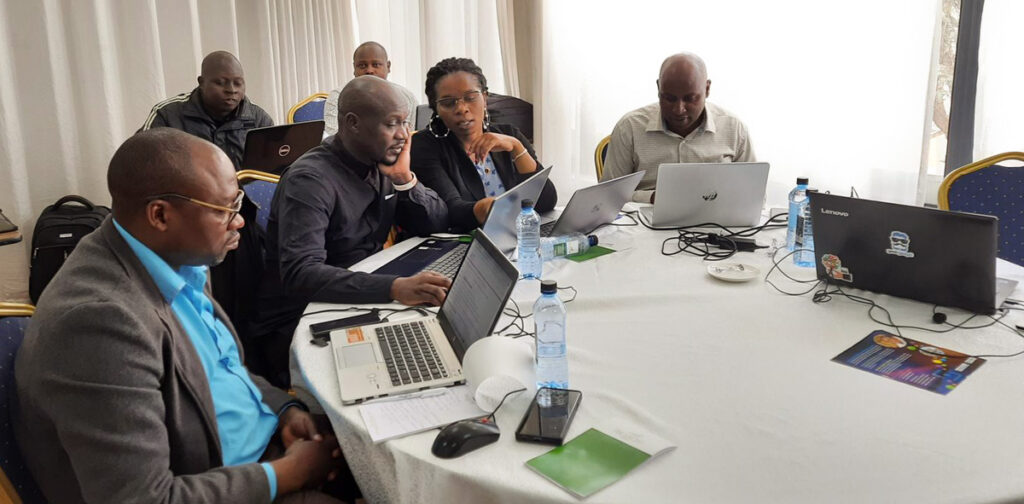
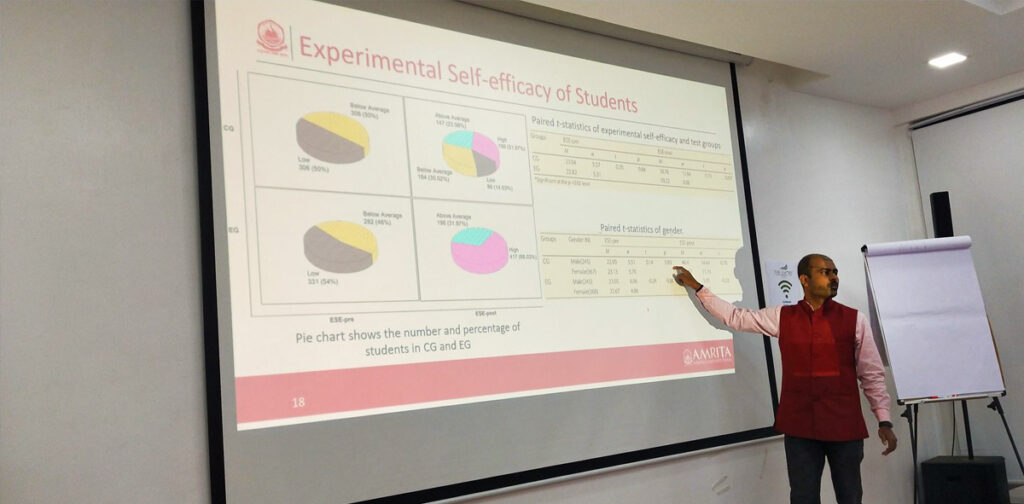
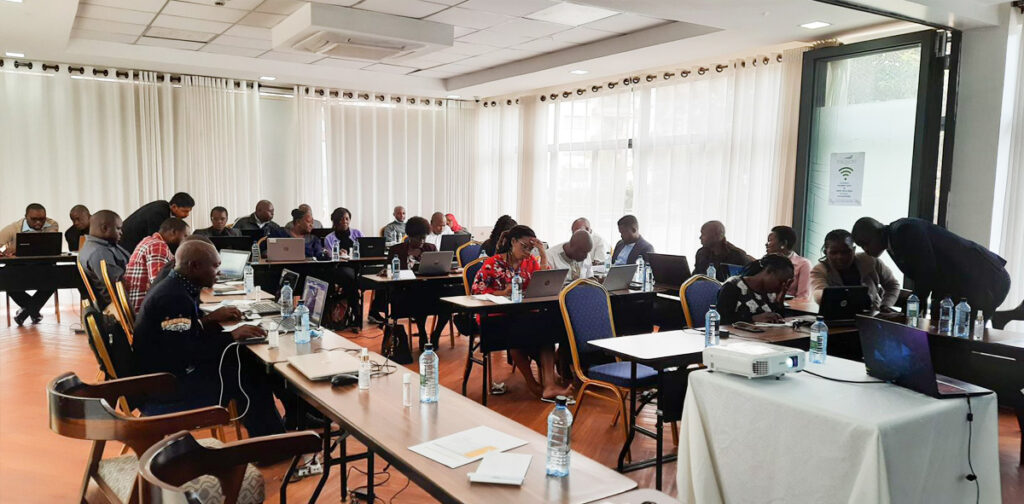
The demand for virtual technology-enabled learning increased during COVID-19, as the entire world entered an academic crisis sparked by school closures. In the African continent, current studies depict the resultant loss of learning and slow recovery in restoring the pace of learning to pre-pandemic standards.
In many African schools, even before the pandemic, they struggled with meeting infrastructural and curricular demands for science, technology, engineering, and mathematics (STEM). Since the pandemic, more schools have seized the opportunity to adopt virtual learning to redress the impact of school closures and to increase the quality of STEM education.
Virtual Labs (VL) is a state-of-the-art technology that has been developed to mimic the equipment and experimental process of laboratory learning. The technology has realistically simulated physical laboratory work to great success in many institutions. Using Virtual Labs, students can not only catch up on learning at their own time, they can also repeat lessons at leisure. Instructors may also use the higher quality resources to reinforce and structure lessons.
Dr. Krishnashree Achuthan explained Amrita’s social commitment to provide and enable low-cost education for the masses. She said, “Virtual Labs enhances the effects of teacher-facilitated learning by stimulating self-learning and encouraging learners to enjoy the process of learning. Supported by Ministry of Education, Govt of India and Amrita Vishwa Vidyapeetham, over 27 African countries actively use Virtual Labs.”
The workshop was filled with hands-on training for African staff interested in implementing VL in their own institutes. They expressed much gratitude to Amrita for this initiative that has the potential to change so many lives for the better.
“Countries like India are very advanced in educational technologies. We can now teach short courses; online courses through partnership with universities like Amrita Vishwa Vidyapeetham,” said Dr. Edvin Tarno, Chief Principal, KTTC.
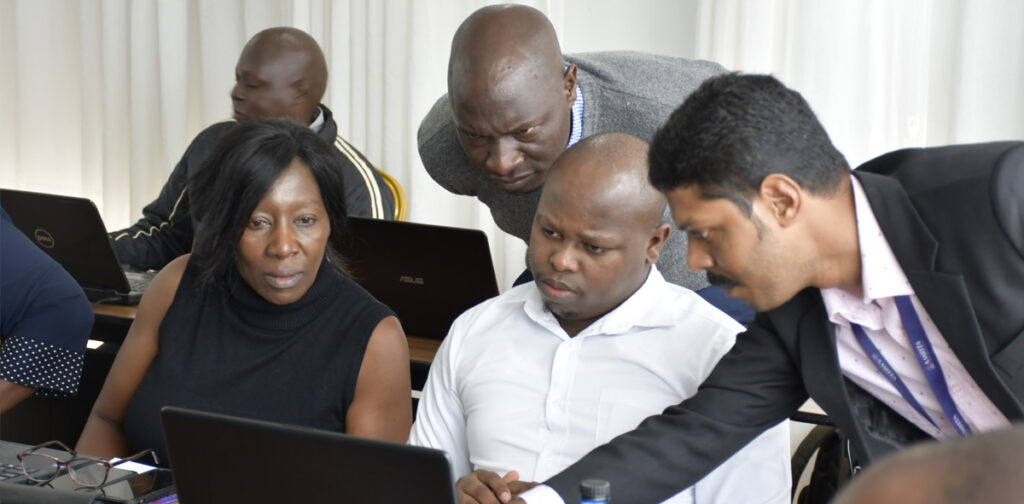
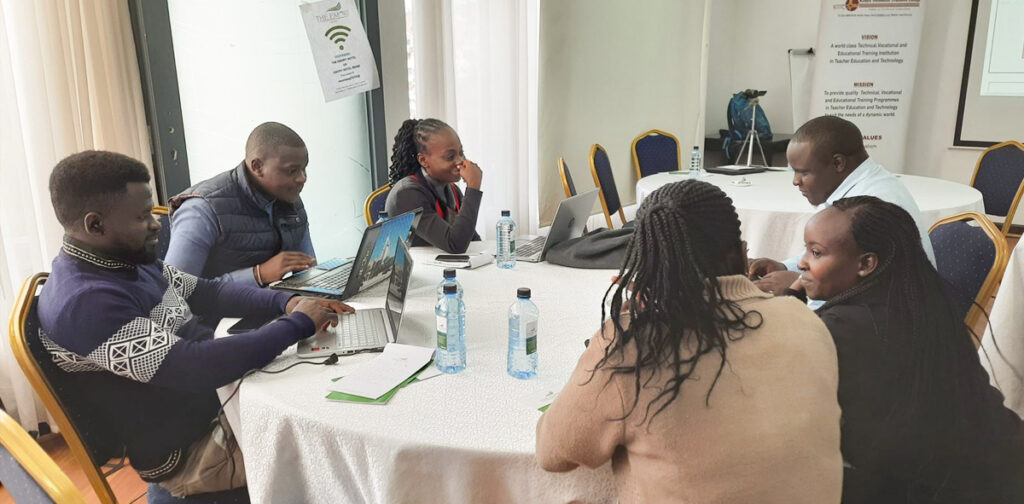
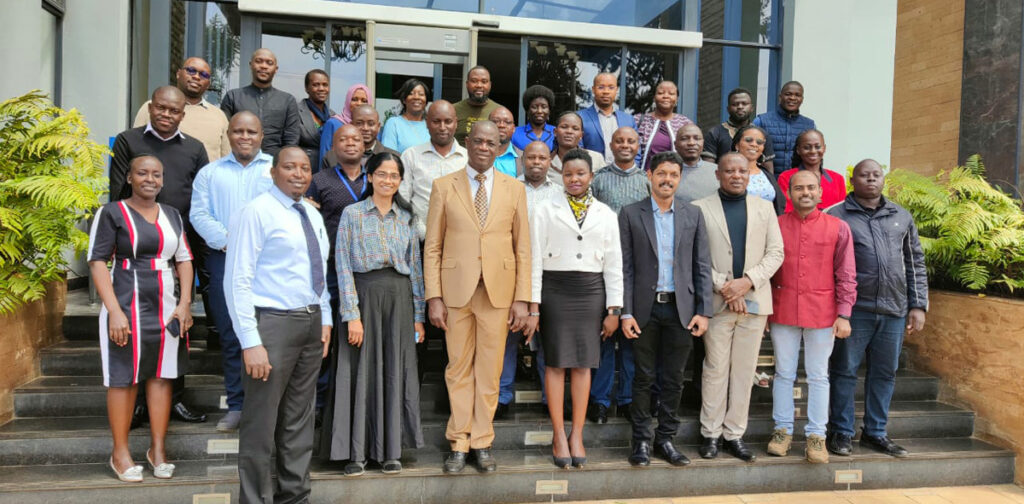
Dr. Margaret Mwakima is the Principal Secretary (PS), Vocational and Technical Training, Ministry of Education, Kenya. She expressed her keen interest in transferring, implementation and management of skills-in-design virtual lab workshops to all participating countries.
Participants gave feedback after trying the assignments our team gave them, and they felt that VL is particularly useful for countries that are resource scarce. Mwenda Steve from Zambia said, “Practicals are ideally supposed to be learned in physical laboratories. However, you find that because of challenges such as the requirement for operators or certain apparatus or certain experimental environments being dangerous in nature, it is not always conducive. Virtual Labs satisfy student needs if we use it as a complementary tool to teach in class.”
Another participant, Nakazibwe Sauda, Uganda, corroborated Virtual Labs’ necessity in the context of African countries. “Because of many problems that we face in our country, students or parents cannot afford equipment and material that they may require. So, if we implement virtual learning, we feel that even the poorer students are able to access the materials and requirements that would have been out of their reach.”
Amrita, in the interest of perpetuating and supporting social welfare, continues to reach out internationally to increase awareness of the value of Virtual Labs to the larger, world community. In view of providing quality service, Amrita Virtual Labs will continue to support dynamics of users’ learning and enhance their learning curve. This will ultimately pave way to improving STEM education internationally, regardless of the user demography and nationality.


